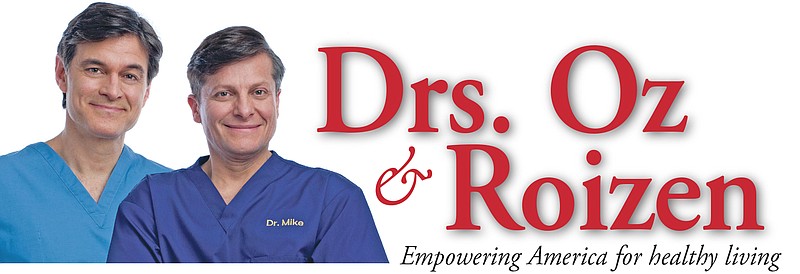Q: My mom had a mild heart attack last year, and she's really changed her life as far as better eating habits and exercise. I know that's heart-smart, but isn't it true that those lifestyle changes can also protect her from cancer? -- Nonni, D., Tuscaloosa, Alabama
A: You are right on the money, Nonni. We're glad your mom has changed her ways and sorry her wake-up call was a cardio event, but it may have saved her life in the long term. You see, we know that the risk factors for heart disease -- smoking, unchecked stress, poor diet, a sedentary lifestyle and high blood pressure -- are also risk factors for many cancers, but until now we didn't really understand the connection.
Researchers from Massachusetts General Hospital used 15 years of data from the Framingham Heart Study and uncovered a strong physiological connection between developing cardiovascular disease and being diagnosed with gastrointestinal, breast, prostate or lung cancer, for example. In fact, study participants who developed cardiovascular disease (heart attack, atrial fibrillation or heart failure) were seven times more likely to be diagnosed with cancer than people who did not have any cardiovascular problems.
The connection? When heart ventricles (your lower heart chambers) are stressed, as they can be with heart disease, they produce a biomarker called BNP (B-type natriuretic peptide) that helps dilate blood vessels. People who had high levels of BNP were much more likely to develop cancer. This could be the link between the two leading causes of death in the U.S.
Tell your mom to keep eating well (7-9 servings of produce daily); avoid the five food felons (added sugars and syrups, saturated and trans fats and any grain that isn't 100% whole); and to exercise (10,000 steps or the equivalent daily). Mention how important meditation is for dispelling stress. If she's part of a cardio rehab program, it will probably offer a meditation class, or she can go to Sharecare.com to learn more about mindful meditation.
Q: I think my sister is a secret binge eater. When we're out for dinner she barely eats anything, but she's quite overweight. Is there anything I, or she, can do to stop this behavior? -- Maya D., Lafayette, Louisiana
A: First, you have to find out if she really is a binge eater, and that's a tough conversation. Start slow and gentle. Let her open up. And when that happens, you want to have a good understanding of what she's dealing with.
Officially, binge eating is the most common eating disorder in the U.S. But we'd say it's second to habitual overeating, which often happens at night. Binge eating disorder affects 3.5% of women, 2% of men and 1.6% of adolescents, but it wasn't until May 2013 that the Diagnostic and Statistical Manual of Mental Disorders 5 (DSM-5) classified BED as a diagnosable condition.
BED is characterized by eating alone, more rapidly than normal, continuing to eat even though you're full and eating when you're not really hungry. Two-thirds of people with BED are obese; purging is NOT associated with binge eating. People with BED have higher levels of anxiety and depression than people of normal weight or obese folks who do not binge.
So why does this happen? We know that people who binge are depressed, but we're not certain that depression triggers binge eating. There's also some indication that restricting food intake, or trying to follow very low calorie diets, may set off a binge. Also around half of people with BED will binge right before starting a diet.
Because people with BED often feel out of control, the first line of defense is cognitive behavioral treatment or talk therapy. Also, it may be helpful to join a support group (Overeaters Anonymous offers some; check out www.oa.org), as is working with a dietician or nutritionist. Lastly, the National Eating Disorders Association (www.nationaleatingdisorders.org) mentions that there are medications such as antidepressants and anticonvulsants that can
help.
Mehmet Oz, M.D. is host of "The Dr. Oz Show," and Mike Roizen, M.D. is Chief Wellness Officer and Chair of Wellness Institute at Cleveland Clinic. Email your health and wellness questions to Dr. Oz and Dr. Roizen at youdocsdaily(at sign)sharecare.com.
(c)2019 Michael Roizen, M.D. and Mehmet Oz, M.D.

